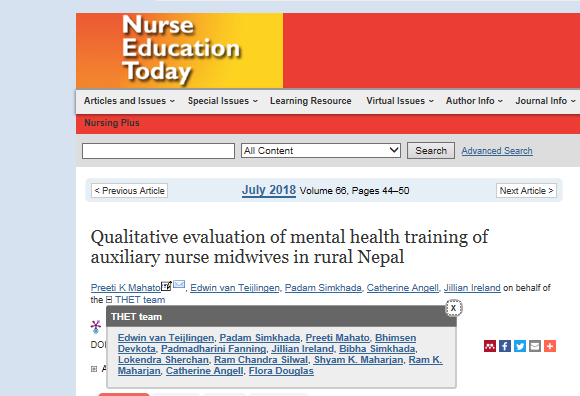 This week saw the pre-publication of ‘Qualitative evaluation of mental health training of auxiliary nurse midwives in rural Nepal’ in the international journal Nurse Education Today (published by Elsevier). The paper is a report of an evaluation of a THET-funded projectwhich run from 2015 to 2017. Bournemouth University led a team comprising Liverpool John Moores University and Tribhuvan University (the oldest university in Nepal). These three universities worked together on a training project of Auxiliary Nurse Midwives in Nawalparasi focusing on key aspects of mental health and mental health promotion. The project was funded under the Health Partnership Scheme (HPS) which is managed by a London-based organisation called THET (Tropical Health & Education Trust).
This week saw the pre-publication of ‘Qualitative evaluation of mental health training of auxiliary nurse midwives in rural Nepal’ in the international journal Nurse Education Today (published by Elsevier). The paper is a report of an evaluation of a THET-funded projectwhich run from 2015 to 2017. Bournemouth University led a team comprising Liverpool John Moores University and Tribhuvan University (the oldest university in Nepal). These three universities worked together on a training project of Auxiliary Nurse Midwives in Nawalparasi focusing on key aspects of mental health and mental health promotion. The project was funded under the Health Partnership Scheme (HPS) which is managed by a London-based organisation called THET (Tropical Health & Education Trust).
Mental illness is increasingly recognized as a global health problem. However, in many countries, including Nepal, it is difficult to talk about mental health problems due to the stigma associated with it. Hence a training programme was developed to train auxiliary nurse midwives, who otherwise are not trained in mental health as part of their pre-registration training in rural Nepal, on issues related to maternal mental health. After the training programme a selection of auxiliary nurse midwives were interviewed to establish their views on the training, its usefulness and ways to improve it.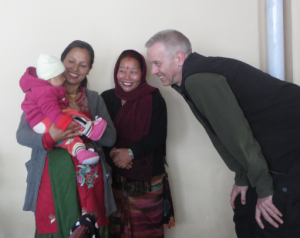
Preeti Mahato is a PhD student in the Centre for Midwifery, Maternal & Perinatal Health (CMMPH) who undertook an in-depth evaluation of our project as part of her PhD research. This qualitative study has three themes emerging: (1) issues related to training; (2) societal attitudes; and (3) support for women. The ‘training’ theme describes the benefits and limitations of training sessions. ‘Societal attitudes’ describes society’s attitude towards mental health which is largely negative. ‘Support’ describes the positive behaviour and attitude towards pregnant women and new mothers.
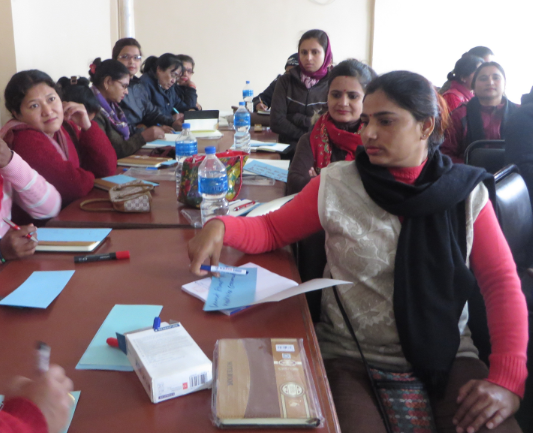 The paper concludes that there is a need for continued training for auxiliary nurse midwives who are based in the community. This gives them the opportunity to reach the whole community group and potentially have influence over reduction of stigma; offer support and diagnosis of mental ill-health. There is still stigma around giving birth to a female child which can lead to mental health problems. It is imperative to increase awareness and educate the general public regarding mental health illnesses especially involving family members of those who are affected.
The paper concludes that there is a need for continued training for auxiliary nurse midwives who are based in the community. This gives them the opportunity to reach the whole community group and potentially have influence over reduction of stigma; offer support and diagnosis of mental ill-health. There is still stigma around giving birth to a female child which can lead to mental health problems. It is imperative to increase awareness and educate the general public regarding mental health illnesses especially involving family members of those who are affected.
Reference:
- Mahato, P., van Teijlingen, E., Simkhada, P., Angell, C., Ireland, J. on behalf of THET team (2018) Qualitative evaluation of mental health training of Auxiliary Nurse Midwives in rural Nepal. Nurse Education Today 66: 44-50. http://www.nurseeducationtoday.com/article/S0260-6917(18)30150-3/abstract
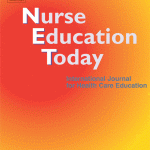 New CMMPH paper accepted in Nurse Education Today
New CMMPH paper accepted in Nurse Education Today Systematic Review birthing centres by CMMPH PhD student Preeti Mahato
Systematic Review birthing centres by CMMPH PhD student Preeti Mahato Maternal mental health in Nepal ICM presentation
Maternal mental health in Nepal ICM presentation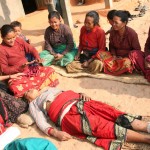 New paper CMMPH PhD student Sheetal Sharma
New paper CMMPH PhD student Sheetal Sharma










 Beyond Academia: Exploring Career Options for Early Career Researchers – Online Workshop
Beyond Academia: Exploring Career Options for Early Career Researchers – Online Workshop UKCGE Recognised Research Supervision Programme: Deadline Approaching
UKCGE Recognised Research Supervision Programme: Deadline Approaching SPROUT: From Sustainable Research to Sustainable Research Lives
SPROUT: From Sustainable Research to Sustainable Research Lives BRIAN upgrade and new look
BRIAN upgrade and new look Seeing the fruits of your labour in Bangladesh
Seeing the fruits of your labour in Bangladesh ECR Funding Open Call: Research Culture & Community Grant – Apply now
ECR Funding Open Call: Research Culture & Community Grant – Apply now ECR Funding Open Call: Research Culture & Community Grant – Application Deadline Friday 12 December
ECR Funding Open Call: Research Culture & Community Grant – Application Deadline Friday 12 December MSCA Postdoctoral Fellowships 2025 Call
MSCA Postdoctoral Fellowships 2025 Call ERC Advanced Grant 2025 Webinar
ERC Advanced Grant 2025 Webinar Update on UKRO services
Update on UKRO services European research project exploring use of ‘virtual twins’ to better manage metabolic associated fatty liver disease
European research project exploring use of ‘virtual twins’ to better manage metabolic associated fatty liver disease